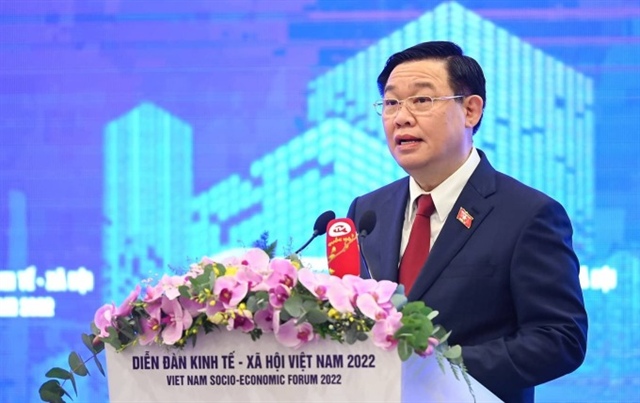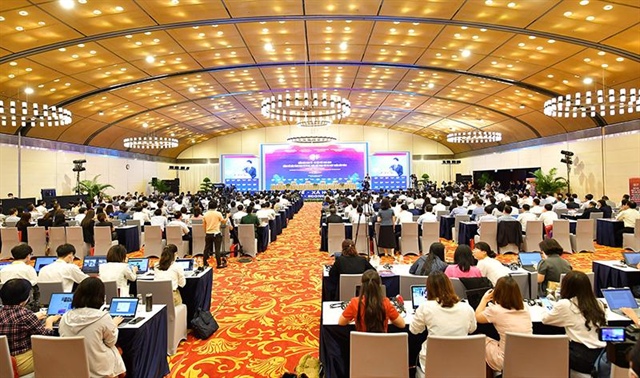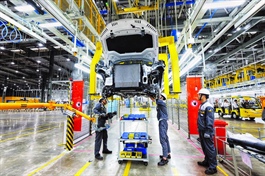Macroeconomic stability key for Vietnam to weather global uncertainties
Macroeconomic stability key for Vietnam to weather global uncertainties
Vietnam's economy remains on the road to recovery, but still faces considerable challenges from both the domestic and international fronts.
Macroeconomic stability is key for Vietnam to address the growing uncertainties in the global economy.

Chairman of the National Assembly Vuong Dinh Hue at the forum. Source: quochoi.vn |
Chairman of the National Assembly Vuong Dinh Hue gave the remarks at the Vietnam Socio-Economic Forum 2022, themed “Reinforcing the macroeconomic foundation, promoting sustainable recovery and development”, held today [September 18] in Hanoi.
According to Hue, the Vietnamese economy is on the road to recovery, with the GDP growth in the first six months hitting 6.42% year-on-year, and being on track to hit 7-7.5% for this year.
International organizations such as the World Bank, IMF, and ADB have forecast positive outlooks for Vietnam with economic growth in the range of 6.7-7.5% in 2022, and the inflation rate below the Government’s target of 4%.
Moody’s has recently forecast Vietnam’s GDP growth in 2022 at 8.5%, the highest in Asia-Pacific. The rating agency has also raised the country’s sovereign rating from Ba3 to Ba2, with a stable outlook.
“Vietnam is the only country in Asia-Pacific, and among four in the world having its rating upgraded by Moody’s since early 2022,” Hue said.
The National Assembly Chairman, however, mentioned major challenges to the economy during the remainder of the year.
From the external front, the high risk of economic recession and financial instability would cause negative impacts on the recovery of global value chains. Meanwhile, the fact that central banks around the world are now tightening monetary policies and raising interest rates to curb inflation has slowed growth in economies around the world, especially in Vietnam's major trading partners, while rising geopolitical tension is fueling a global energy and food crisis.
Within the local economy, Hue acknowledged the slow progress in the socio-economic recovery program.
The stimulus package on infrastructure investment worth VND113 trillion (US$4.7 billion), expected to drive the recovery process, has not been kick-started due to procedural issues in the preparation.

Overview of the forum. |
The slow progress of public investment remains a bottleneck for economic growth, with the disbursement of public funds in the eight-month period at 39.2%, including that of ODA-funded projects at 15% of the year plan, lower than the rate of the same period last year.
Although inflation remains within limits, Hue warned of high inflationary pressure, as energy and transport costs continue to rise, along with rising non-performing loans in the banking sector and a lack of sustainability in the real estate and stock markets.
Director of the Ho Chi Minh National Academy of Politics and Chairman of the Central Theoretical Council Nguyen Xuan Thang expected the Government to address key bottlenecks in the economy for the benefit of the business community and better mobilize social resources for development.
In addition, Thang pointed out the necessity to enhance the efficiency of the labor market, focusing on improving workforce quality and labor productivity.
For the long-term goal of rapid and sustainable development, Thang called for Vietnam to continue the energy transition while ensuring energy security; promoting salary reform; and creating breakthroughs in legal institutions, infrastructure, science, technology, and innovation.




















